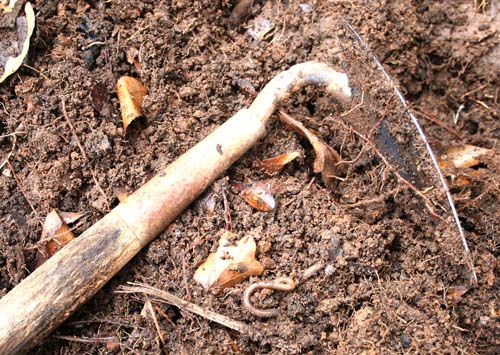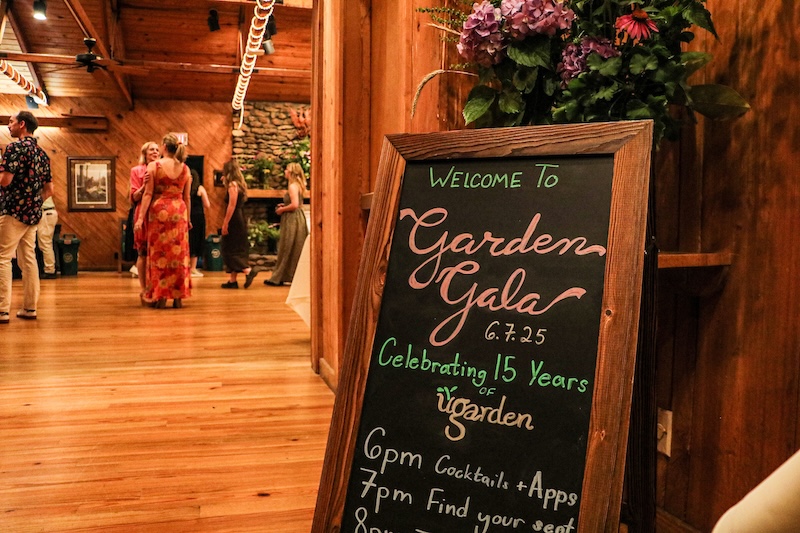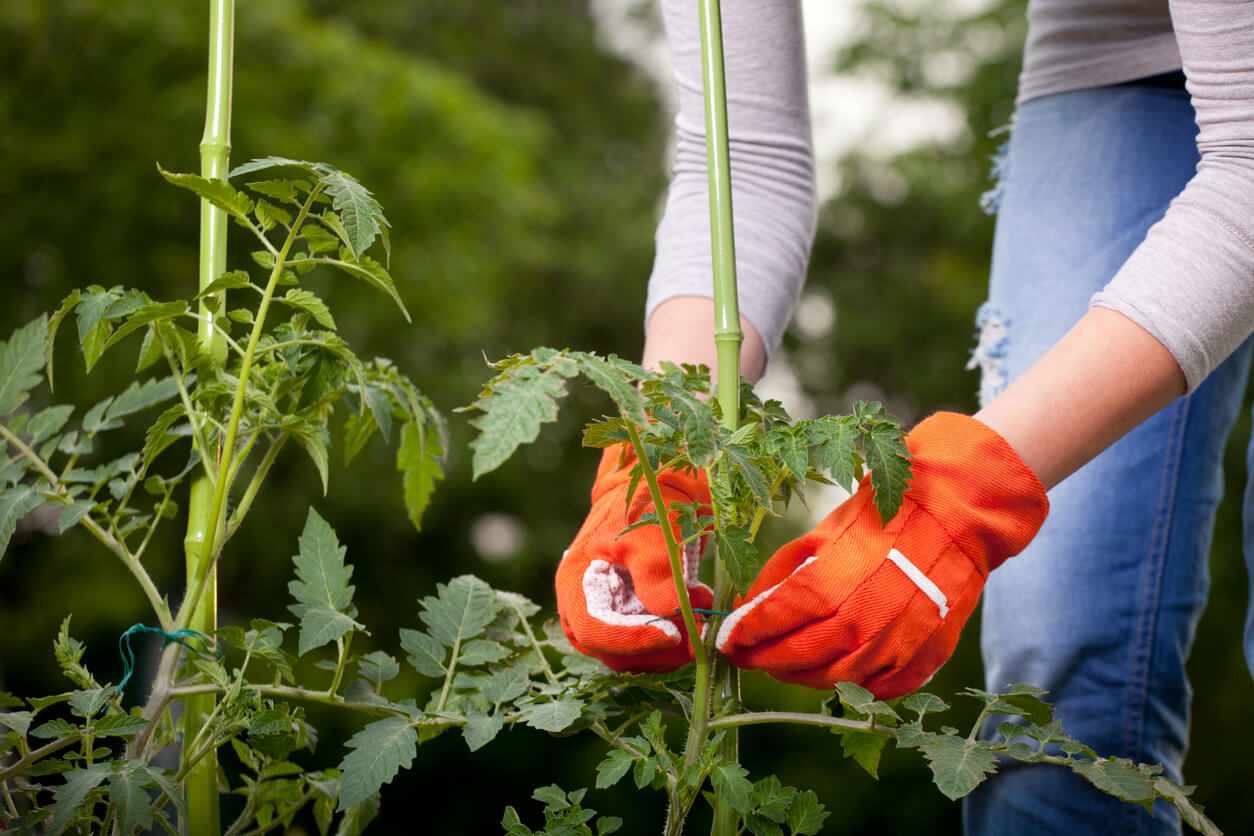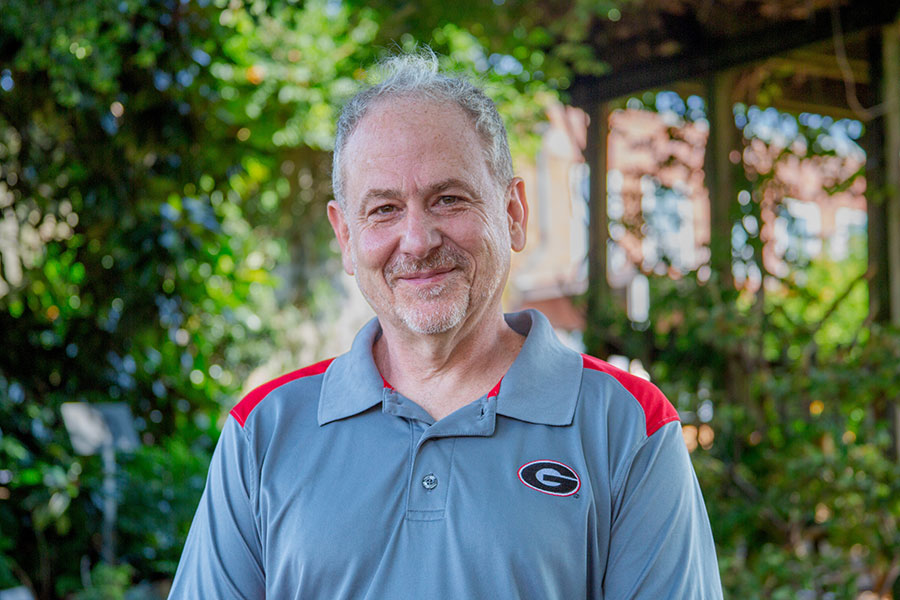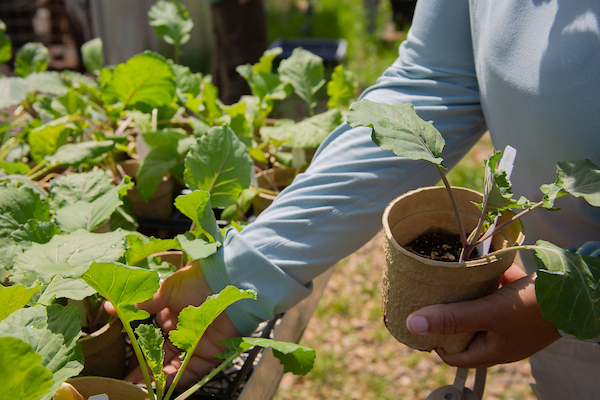Recycling paper and bottles is good for the planet. Recycling food waste into compost is good for your garden, saves water and makes your plants happier, according to a University of Georgia expert.
Compost is decomposed organic matter. In heavy clay soils, compost reduces compaction, increases aeration and helps water seep better into the soil. In sandy soils, it helps retain both water and nutrients, said Bob Westerfield, a horticulturist with the UGA College of Agricultural and Environmental Sciences.
“Incorporating finished compost into vegetable garden beds or plant beds amends the soil and allows water and air to filter more easily through the soil,” he said. “This can help prevent run-off and adds nutrients to the soil.”
Wait to add compost to gardens until the soil is dry enough to be worked. He suggests tilling finished compost into the soil 6 to 8 inches deep.
Nearly finished compost can be used as mulch. It helps plants retain moisture and prevents weeds.
To make compost, mix brown and green organic materials. Brown compost material includes dry dead plants, leaves, grass clippings, shredded paper and wood chips. Brown compost provides carbon. Green compost material includes fresh-plant products, coffee grounds, tea bags and fruit and vegetable waste from the kitchen. It provides nitrogen.
Westerfield says to include more brown items than green. The ratio should be 3 to 1. Materials should be added in layers, alternating brown and green. Don’t add meats, bones, grease or other animal-based food waste. They can smell bad and attract rodents.
A pile of compost can take three weeks to six months to process, depending on the care. Adding fresh material to a pile can cause the process to take longer.
“The composting cycle will work faster if the pile is kept moist and turned frequently,” he said. “The more you agitate the pile, the faster it will compost.”
Along with turning the pile a few times a month, rainwater helps maintain moisture. Water should be added only to keep the pile moist, not wet.
“It is nice to have two or three bins so you can have several stages of compost,” he said.
Remove finished compost from the pile and put in a separate bin for use. “Some people are disappointed because they fill the bin up. And when it becomes compost, they end up with 10 to 20 percent of what they put in,” he said. “As it biodegrades, its volume drastically reduces.”
Fertilizer can be added to the pile. A little 10-10-10 mixed fertilizer and a few scoops of garden soil are suggested. Don’t add lime.
Composting provides organic material to plants and is a valuable type of recycling. “It’s a way to recycle waste and save money by producing a product from trash you would otherwise have to buy,” Westerfield said.

